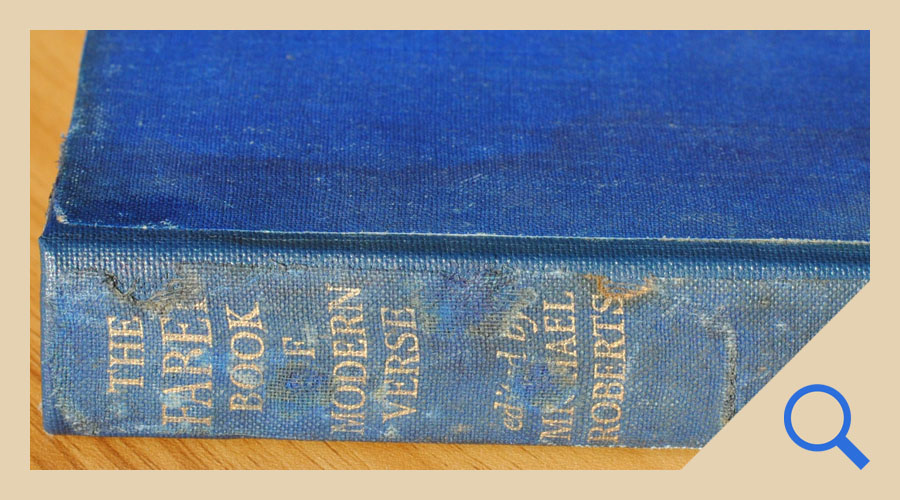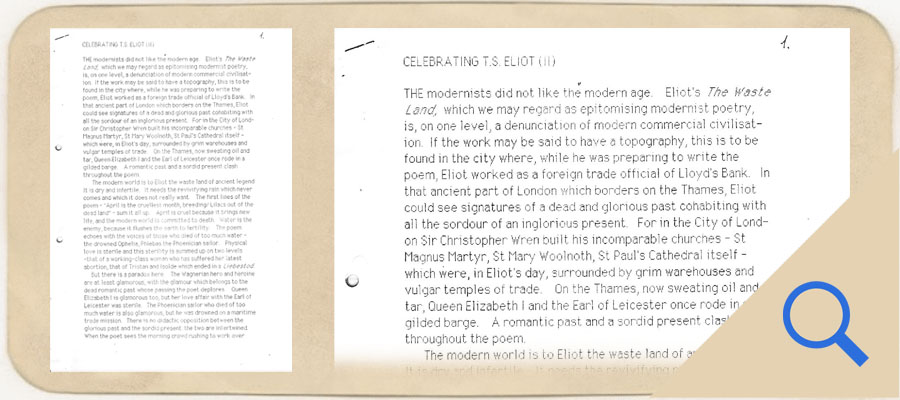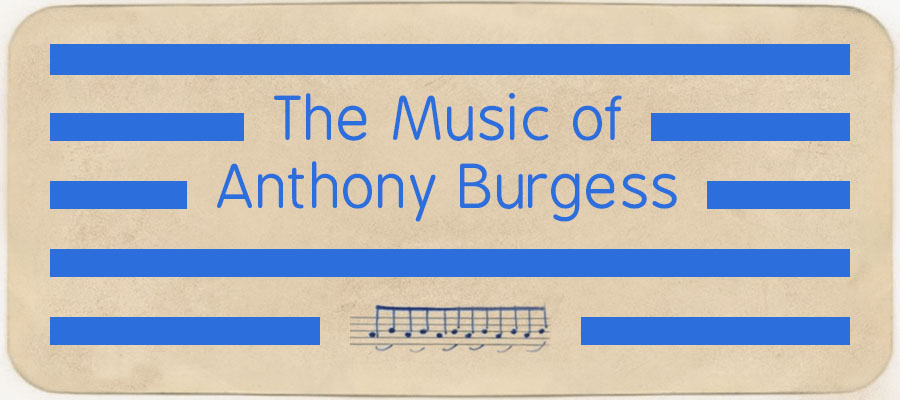The Music of Anthony Burgess: The Waste Land
Explore Anthony Burgess’s setting of The Waste Land by T.S. Eliot below.


This is Anthony Burgess’s copy of The Faber Book of Modern Verse (1935), which contains the text of The Waste Land. Burgess made an audio recording of part one of the poem in 1979.


In this article, written for the Eliot centenary in 1988, Burgess explores some of the key elements of the poem.

The Waste Land in context
Reading The Waste Land by T.S. Eliot in 1932, aged fifteen, was a revelatory experience for Anthony Burgess.
‘I understood very little of the poem, but I recognised that it was important. I seemed to hear a door, a long way down one of my mind’s corridors, trying to creak open but not quite making it. I copied the whole poem out. Then I got to learning it by heart.’
Burgess’s copy of The Waste Land, now part of the book collection at the Burgess Foundation, is marked up for performance, perhaps for a student production. He regarded The Waste Land in particular, as one of the foundational works of modern literature: he described Eliot’s writing as a ‘magical achievement, making out of the sane, the reasonable, the scholarly, even the flat and prosaic, a poetry which induces the authentic tingling down the spine and even moves to tears.’
Burgess returned to the poem throughout his life and it remained a profound influence on his writing — and music.
He composed a complete setting of the work, which is one of his best chamber pieces. Commissioned by the cellist Michael Rudiakov at Sarah Lawrence College in Bronxville, New York, the piece was premiered in 1978 and revived in 2014, when the ensemble Psappha gave its first European performance at the Burgess Foundation.
In the manner of Eliot’s writing, Burgess uses musical styles and techniques from different times and cultures to create a rich, allusive tapestry. Quotations from Stravinsky and Wagner in particular, as well as from popular songs of the 1910s and the First World War, are woven into an original and ambitious 35-minute work for six performers: flute, oboe, cello, piano, soprano and narrator.
Eliot’s text is declaimed over a gentle, sonorous background, interspersed with moments of action and drama — rather like a film soundtrack. Burgess said that he sometimes thought of the poem as ‘a film scenario — with its jump cuts and flashes backward and forward and montages and intense economy — more so than anything by Truffaut or Godard or Fellini or Antonioni.’
Burgess’s setting of the final section of the poem, ‘What the Thunder Said’, is almost entirely original, with distinct musical ideas for each episode, including crashing piano and suspenseful trembling strings. The ending is presented mainly in silence except for big chords from all the players on the first word of the Sanskrit prayer which appears towards the end of the poem. The final words ‘Shantih shantih shantih’ are juxtaposed with the ‘Dresden Amen’, a six-note liturgical motif used by Richard Wagner in his opera Parsifal.
Summing up his thoughts on Eliot’s long poem, Burgess wrote: ‘Music decays when it moves too far from the dance, and poetry decays when it neglects to sing. The Waste Land sticks in one’s mind like a diverse recital performed by a voice of immense variety but essentially a single organ: it sings and goes on singing.’











